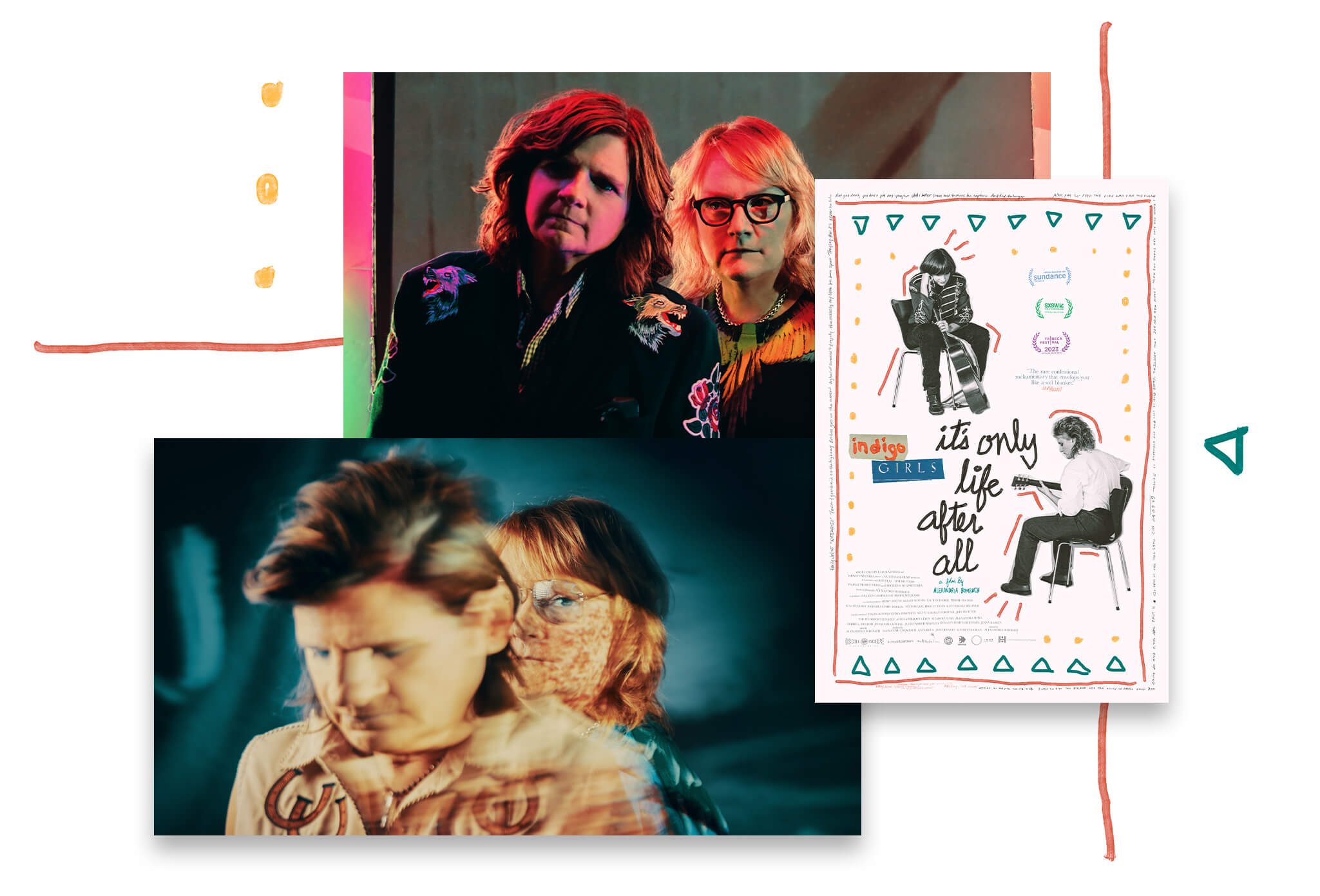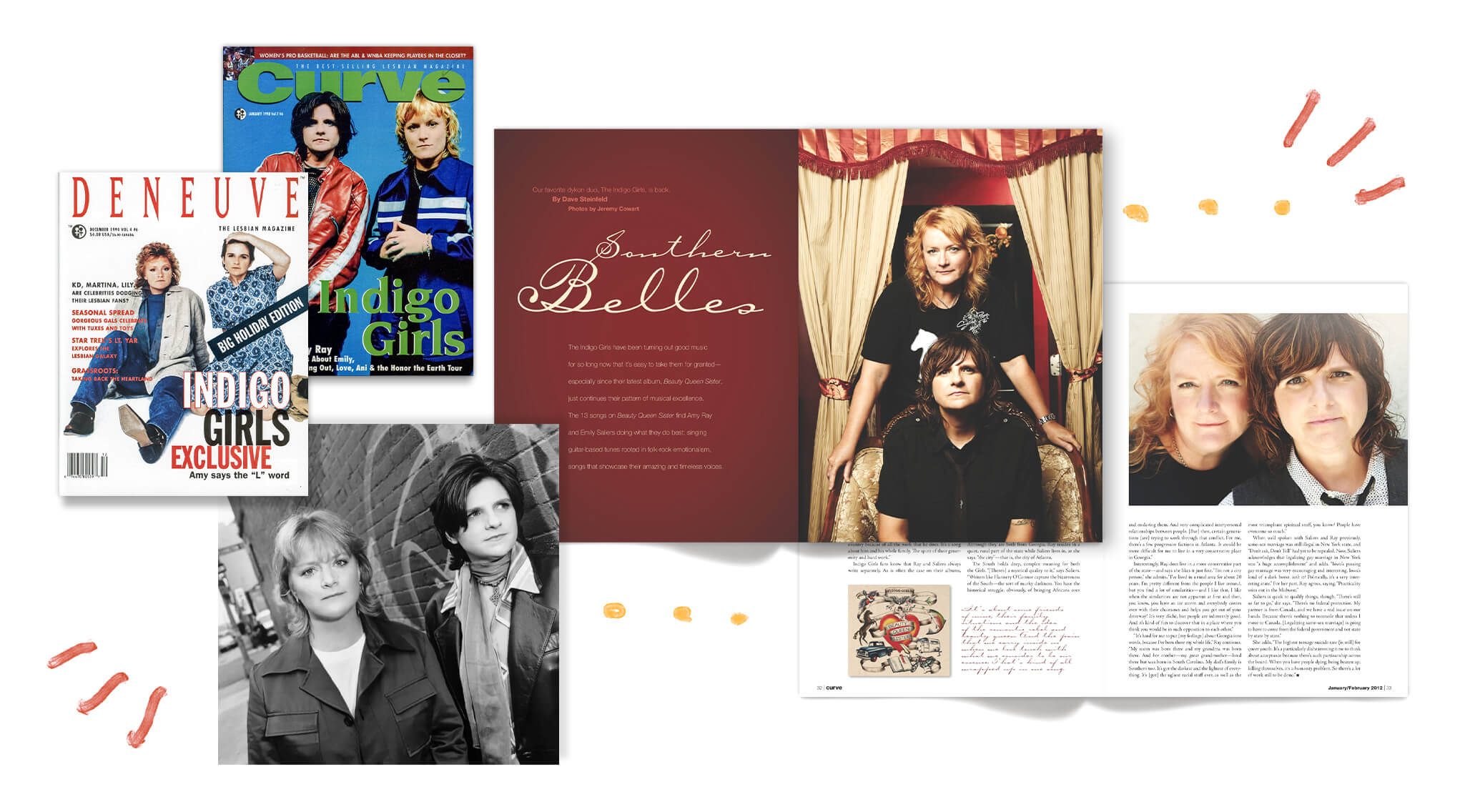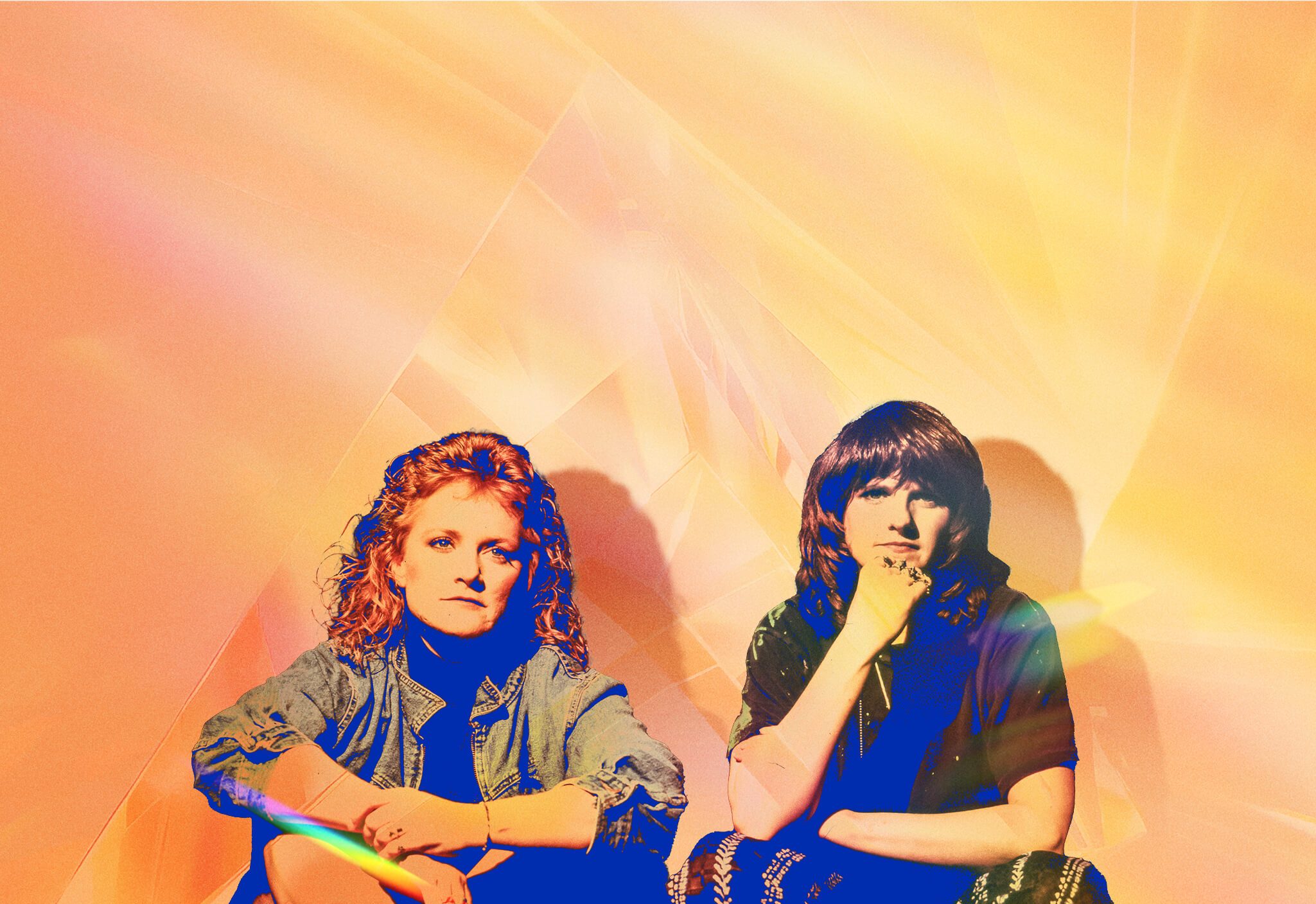Thirty-five years into their career, the Indigo Girls are (as they say) having a moment. The irony is that they haven’t released a new album since Look Long in 2020! And yet, their profile has risen recently – particularly in the past year. Part of that, no doubt, was having their signature song “Closer to Fine” used in last year’s blockbuster film Barbie. But it’s not just that. The Girls have also been involved in several other projects as of late. Their music was also used in the Tom Gustafson film Glitter & Doom, which stars Lea DeLaria, Kate Pierson, and even the Girls themselves. They are planning two separate tours later this summer: one with fellow lesbian icon Melissa Etheridge (that kicks off August 11th in Highland Park, Illinois) and another with Amos Lee. Emily is working on a musical that she hopes will come to Broadway, while Amy added another chapter to her lengthy solo career in 2022 with the kickass Americana album If It All Goes South.
But the crown jewel in the Indigo Girls’ recent list of projects has to be It’s Only Life After All, a documentary about the duo directed by Alexandria Bombach, which will be released on streaming services later this year. I watched it once and was moved to tears within the first 10 minutes. It’s Only Life takes a warts-and-all look at the Girls’ career: their music, their activism, their family life, their origins in the Georgia music scene, their struggles – separately and together – and their triumphs. It’s a beautiful film and a must for any Indigo Girls fan.
Before they started playing music together, Amy Ray and Emily Saliers were childhood friends: Ray was a native Georgian, while Saliers was originally from Connecticut. They met when Emily was in sixth grade and Amy was in fifth- and it took them a while to become friends. But when they did, they stayed friends. Initially, they went to different colleges before both transferring to Emory College. By now, it was the ’80s and there was a fertile music scene in the Athens, Georgia area thanks to REM, the B-52’s and other bands. The Girls began performing together at a club called Little Five Points. I tell Amy that, from the footage in It’s Only Life, it seemed like a magical venue.

Indigo Girls: It’s Only Life After All is now streaming.
“Oh God!” she responds. “That place was totally magical. It was a community pub in every sense of the word. People hung out there from different walks of life… My parents would come. And then there’d be some table [of] Goth people next to them!” she laughs.
“The guy that ran it, John Blizzard, really helped us,” Amy continues. “[He] was just a local guy who also ran the dance company and had been in theater his whole life. He kinda took the bar over, developed the musical side of it and just had a knack with people. We started playing for nothing you know, no door charge or anything. We played, I think, one night a week or something and then it turned into two or three nights a week with a cover charge. [John] kinda developed our career in that place, you know?”
“John was a gay man and activist,” adds Emily. “He did a lot of outreach during the AIDS crisis, working with local populations who needed support. He also took Amy and me under his wing and was very important to us personally. So we got to see him all the time, and he provided that opportunity for us at Little Five Points pub. At one point, we were sort of like the house band. We did an album release party there for Strange Fire, which was our first independent LP.”
“The other thing that was important was [that] it was really mixed,” she goes on. “All walks of life were [at Little Five Points]. Musicians from different bands, musicians who weren’t in bands – you know, we all got up onstage together and played. We had a largely lesbian following who were so devoted and gave us a real boost.”
Not everything in the Indigo Girls’ career has been rosy, though; the documentary makes this clear. Amy talks about how her default feeling, especially in the early days, was anger as well as her gender dysphoria. For her part, Emily is brutally honest about her battle with alcoholism. In fact, one of the pivotal moments in the film is when she says, “Sobriety is the only thing I’ve ever done that I’m proud of.” Strong words, coming from someone who is a talented and successful musician, and I asked her to expand on them.
“This fall, I’ll be 13 years in recovery,” says Emily. “It’s impossible to explain alcoholism to someone who’s not an alcoholic. But the basic idea is that it’s a disease that grips you to the point where you will give up everything else for it… For a long time, we all just partied together. Everybody I knew – we all drank. Amy stopped drinking – not because she was an alcoholic but [because] she just didn’t want it in her life anymore. Some of [my friends] still drink socially. But for me – you know, it’s in my family DNA. One of us was bound to get it and I was the one.”
“So when I say it’s the only thing I’m proud of… Professionally, we’ve had incredible things happen for us. But I don’t really take credit for the things that have happened to us that are so wonderful. I’m [just] one part of this community that made [them] happen. But for sobriety, you have to work – and you have to work hard. I had to follow a program; I don’t know how anyone gets sober without one. So, I gave up the thing I wanted most in life. I thought it was impossible to become sober. And I still work at it every day! I go to meetings and all that stuff. No one does it without help and I had all the help and support in the world. But in the end, I had to do the work. And I’m proud of that. It’s definitely the hardest thing I’ve ever done — and the most rewarding.”

Something else that stood out to me in It’s Only Life was a quote from Amy later in the film. When we get to the present — the pandemic, Donald Trump, and the general soul-crushing chaos of the last few years – she says, “I don’t think people should own Christianity.” I ask her to expand on that.
“That’s the thing. The Christian right has reared its head in this very negative way. We were singing about that when we were in college! You know what I mean? It’s crazy to me that [it] hasn’t changed.”
“I was raised Methodist,” she continues. “I spent a lot of time in church. I still go to church with my Mom and I get a lot out of it. I’m still a Methodist! I’m kind of a pagan Methodist – ’cause I hold the myths to be my construct but I also believe in all these other things… I was able to take the good things out of [the church but] I’m still wrestling a bit with the demons. I was so passionate about the ideas of church and community and the gospel of love and faith-based activism… Those are things I took out of the church. Some message that’s much bigger than what the church is in the right wing. To me, they profess all this love [but] there’s so much hate in there. I don’t want them to own Christianity. ‘Christian’ should not be synonymous with ‘anti-gay! And it is in most people’s eyes.”
For her part, Emily adds, “The right-wing Christians get the noise. But there’s also right-wing Muslims and right-wing Jewish people. So any right-wing or fundamental practice of a religion will endanger our rights. I’m terrified, and I’m angry, and I’m activated.”
“Donald Trump?” says Emily, when I bring up the very real possibility of a second presidency. “I don’t think he believes anything. I think he cares about money and he [is] surrounded by people who very strongly care about things that affect women. I know that IVF is in danger. In order for my wife to get pregnant, we had to have the help of that. I think about queer women wanting to have families. I think about restrictions on all of our bodies as women, queer or not. I also believe Trump and the Republican party don’t give a fuck about queer people. They really don’t. We have to be cautious from every level of politics and legislation. That includes your school board, your state senators and congresspeople. You know, if he gets elected president again? God forbid. The Republicans are afraid that white people are not gonna stay in power and they’re afraid that queers are gonna be powerful. They’re just afraid, afraid, afraid – under the guise of Christianity.”
After discussing such heavy subjects as alcoholism and Donald Trump, I wanted to end my conversation with the Indigo Girls on an upbeat note. And make no mistake: the Indigo Girls may be realists and activists, but they’re also optimists. When I ask them about their upcoming tour with Melissa Etheridge, they were excited to weigh in. “[We’re] just pouring everything into the tour,” says Amy. “I mean, we haven’t played with Melissa since the ’80s or early ’90s or something.”
“I am so excited to do that tour!” adds Emily. “You know, Melissa and us didn’t cross paths a lot through the years. She lived in LA. We crossed paths very early on after she had gotten signed to a major label, and we did some things together. I remember there was one time we were playing I can’t remember where — but we asked her would she come and sing a song [with us]. And she sang a song, and everybody just lost their shit.”
“But we really had lost touch. Then this tour opportunity came along and we jumped at it. Now, I follow [Melissa] and I see the work that she’s done in the incarcerated women’s community. I’m so grateful for her work with that. And I know that she’s had her own personal struggles. I feel like we’re all women who have grown a lot since we first met and gone through a lot in life. [So] I’m very excited to be back in her company.”
—Dave Steinfeld
